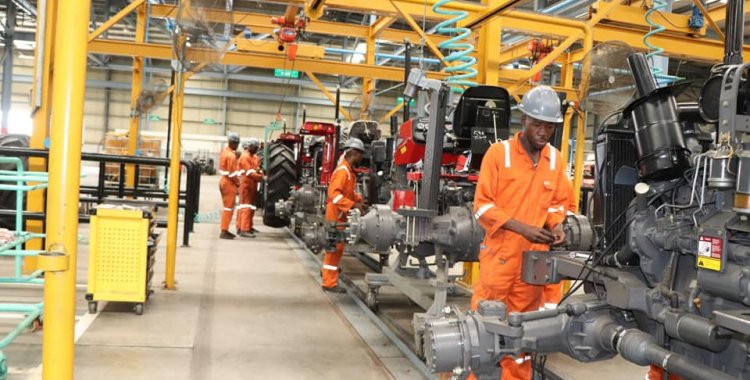"The non-oil economy grew by 3.1 percent in the first quarter of 2023 compared to the same quarter of 2023, representing a slowdown of 2.1 percentage points compared to the fourth quarter of 2022", reads in the analysts' weekly market commentary.
"With this slowdown, the non-oil economy interrupts three consecutive quarters of accelerated growth and our expectation is that it should have grown more slowly in the second quarter, in line with the exchange rate depreciation that started in May and the impacts that the removal of subsidies to fuels has had on the economy," he added.
According to the note, to which Lusa had access, the probability that the non-oil economy, which has driven Angola's growth in recent quarters, has grown below the 3.1 percent of the first quarter "is based on higher growth weak of some" higher frequency indicators.
"The indicator of private transactions (...) grew by 1.5 percent between April and June, which represents a deceleration of 0.7 percentage points compared to the average between March and May", he explained.
BFA's comment comes the day after the BMI consultancy, from the Fitch group, has worsened the forecast on the evolution of the Angolan economy, now anticipating a recession of 0.7 percent of the Gross Domestic Product (GDP) this year.
"In the first quarter of 2023, the Angolan economy grew by 0.3 percent compared to the same period in 2022, the oil economy contracted by 8.0 percent year-on-year, contributing negatively by 2 percentage points to the total change in GDP", write the BFA economists, predicting a further drop, between 4.3 percent and 5.2 percent, in oil GDP in the second half.
Production, they conclude, is also below expectations, remaining below 1 million barrels per day, which represents a drop of 11.8 percent compared to the same period and, together with the fall in the price of a barrel, means a drop in oil revenues, Angola's main source of revenue.
"The average export price fell 22.3 percent year-on-year, settling at an average of 79.4 dollars per barrel, tax revenues from oil yielded around 2.5 billion dollars, corresponding to a year-on-year loss of 29.1 percent," reads the comment.
The document also notes that in the first five months, Angola received 12 billion dollars, around 10.9 billion euros, in oil exports, which represents 4.3 billion dollars less, or 3.9 billion million euros, relative to what was received from January to May 2022.
"According to our calculations, the reduction in prices (price effect) took almost 2.9 billion dollars from total revenues so far, while the drop in production (quantity effect) took 1.6 billion dollars", they conclude.







